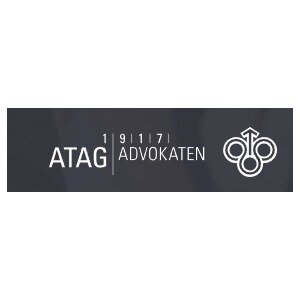Best Energy, Environment & ESG Lawyers in Switzerland
Share your needs with us, get contacted by law firms.
Free. Takes 2 min.
Or refine your search by selecting a city:
List of the best lawyers in Switzerland
About Energy, Environment & ESG Law in Switzerland
Switzerland is known for its strong commitment to environmental protection, sustainable development, and high standards in energy management. Energy, Environment & ESG (Environmental, Social, and Governance) law in Switzerland covers a broad range of legal topics, including energy production and distribution, natural resource management, climate change, waste management, environmental protection, corporate responsibility, and sustainable investing. Swiss legislation closely follows international frameworks and European Union standards, even though Switzerland is not an EU member. The Swiss legal system supports the balancing of economic development with environmental preservation and social well-being, making Energy, Environment & ESG law a vital field for businesses and individuals alike.
Why You May Need a Lawyer
There are several scenarios where seeking legal advice in Energy, Environment & ESG can be essential. Here are some common reasons:
- Launching or expanding an energy-related project, such as renewable energy production or infrastructure development.
- Ensuring compliance with environmental regulations and standards for companies in fields such as manufacturing, construction, or agriculture.
- Seeking permits or licensing for energy generation, waste management, or emissions.
- Navigating complex land use and zoning laws related to energy and environmental impact.
- Responding to investigations or enforcement actions from regulatory agencies for alleged environmental breaches.
- Addressing ESG disclosure requirements in corporate governance and sustainable investing.
- Managing environmental claims, disputes, or liability for contamination or pollution.
- Developing or reviewing contracts with ESG clauses or sustainability commitments.
- Participating in public procurement or government-funded projects with sustainability conditions.
Professional legal support ensures compliance, reduces risk, and helps you manage complex negotiations or disputes.
Local Laws Overview
Switzerland has a sophisticated framework of laws and regulations governing Energy, Environment & ESG issues. Some key legislative aspects include:
- Energy Law - The Swiss Federal Energy Act and Energy Strategy 2050 set ambitious targets for renewable energy production, energy efficiency, and reduced greenhouse gas emissions.
- Environmental Law - The Environmental Protection Act (EPA) establishes the legal groundwork for noise, air, water, and soil protection, as well as waste management and environmental impact assessments (EIA).
- Climate Policy - Switzerland has ratified the Paris Agreement and has a Climate Protection Act with targets for net zero emissions by 2050.
- ESG and Corporate Responsibility - The Swiss Code of Obligations contains provisions for non-financial reporting and supply chain due diligence for large companies, including reporting on environmental and social issues.
- Permitting and Planning - Environmental permitting procedures are required for many types of projects, overseen by federal and cantonal authorities.
- Enforcement - Several government agencies are responsible for inspections, investigations, and enforcing compliance, including penalties for violations.
These laws apply at the federal, cantonal, and municipal levels, which can create a complex regulatory landscape for those unfamiliar with the system.
Frequently Asked Questions
What does ESG stand for, and why does it matter in Switzerland?
ESG stands for Environmental, Social, and Governance. In Switzerland, companies are increasingly required to disclose how they address environmental risks, contribute to sustainable development, and manage social and ethical responsibilities. ESG standards are important for investors, regulators, and customers who value responsible business practices.
What regulations govern renewable energy projects in Switzerland?
Renewable energy projects are governed by the Swiss Federal Energy Act, the Energy Ordinance, and cantonal regulations. Projects typically require permits, environmental impact assessments, and compliance with grid connection requirements.
Is Switzerland on track to achieve its climate goals?
Switzerland has set ambitious climate targets, such as net zero greenhouse gas emissions by 2050. Progress is ongoing with efforts to reduce reliance on fossil fuels and enhance renewable energy production. However, reaching these goals depends on ongoing policy measures and technological developments.
What is an Environmental Impact Assessment (EIA) in Switzerland?
An EIA is a formal process required for certain types of projects that could have a significant impact on the environment. It assesses the environmental consequences and outlines mitigation measures. Approval from authorities is needed before the project can proceed.
Do Swiss companies need to report on ESG matters?
Large Swiss companies and those listed on Swiss exchanges are subject to non-financial reporting requirements. This includes disclosure of environmental, social, and human rights issues, as well as measures taken to mitigate risks in these areas.
How are environmental violations enforced in Switzerland?
Regulatory authorities at the federal and cantonal level can conduct inspections, levy fines, and order corrective measures. Serious violations may also lead to criminal proceedings.
Are there restrictions on foreign investments in Swiss energy projects?
Generally, Switzerland is open to foreign investment. However, certain strategic sectors may be subject to additional scrutiny, particularly in infrastructure or where national security is a concern.
What role do cantonal and municipal laws play?
Energy, environment, and planning regulations often vary at the cantonal and municipal level. Local authorities may have additional permitting requirements or higher standards depending on the location of your project or business.
What is the process for obtaining an energy or environmental permit?
The process typically involves submitting detailed project documentation, conducting required assessments (such as an EIA), and engaging with relevant authorities. There may be an opportunity for public consultation or objections from stakeholders.
When should I consult a lawyer specializing in Energy, Environment & ESG?
Legal advice is recommended at the planning stage of any new project, when facing regulatory investigations, or if complex contractual, compliance, or reporting obligations arise. Early legal input can prevent costly delays or disputes.
Additional Resources
If you need more information or assistance, the following resources can be helpful:
- Swiss Federal Office of Energy (SFOE) - Responsible for national energy policy and regulation.
- Federal Office for the Environment (FOEN) - The primary environmental regulatory body.
- Swiss Financial Market Supervisory Authority (FINMA) - Oversees ESG disclosures for financial institutions.
- Relevant cantonal and municipal environmental offices for local regulations and permits.
- Swiss Association for Environmental Law (Société Suisse de Droit de l’Environnement).
- Non-governmental organizations focused on sustainability and climate action.
- Swiss Bar Association for finding qualified lawyers with expertise in Energy, Environment & ESG law.
Next Steps
If you find yourself needing assistance with Energy, Environment & ESG matters in Switzerland, consider the following steps:
- Identify the specific issue or project you need help with, and gather all relevant documentation.
- Contact the appropriate government office to learn about local requirements and procedures.
- Seek out a qualified Swiss lawyer specializing in Energy, Environment & ESG law, preferably with experience in your sector.
- Arrange an initial consultation to discuss your concerns and receive guidance on compliance, permits, contracts, or dispute resolution.
- Follow the legal advice provided to ensure your activities are in full compliance with all relevant laws and regulations.
Professional legal support will help you anticipate risks, navigate Switzerland’s complex regulatory environment, and achieve your sustainability-related goals.
Lawzana helps you find the best lawyers and law firms in Switzerland through a curated and pre-screened list of qualified legal professionals. Our platform offers rankings and detailed profiles of attorneys and law firms, allowing you to compare based on practice areas, including Energy, Environment & ESG, experience, and client feedback.
Each profile includes a description of the firm's areas of practice, client reviews, team members and partners, year of establishment, spoken languages, office locations, contact information, social media presence, and any published articles or resources. Most firms on our platform speak English and are experienced in both local and international legal matters.
Get a quote from top-rated law firms in Switzerland — quickly, securely, and without unnecessary hassle.
Disclaimer:
The information provided on this page is for general informational purposes only and does not constitute legal advice. While we strive to ensure the accuracy and relevance of the content, legal information may change over time, and interpretations of the law can vary. You should always consult with a qualified legal professional for advice specific to your situation.
We disclaim all liability for actions taken or not taken based on the content of this page. If you believe any information is incorrect or outdated, please contact us, and we will review and update it where appropriate.
Browse energy, environment & esg law firms by service in Switzerland
Switzerland Attorneys in related practice areas.
Browse energy, environment & esg law firms by city in Switzerland
Refine your search by selecting a city.















